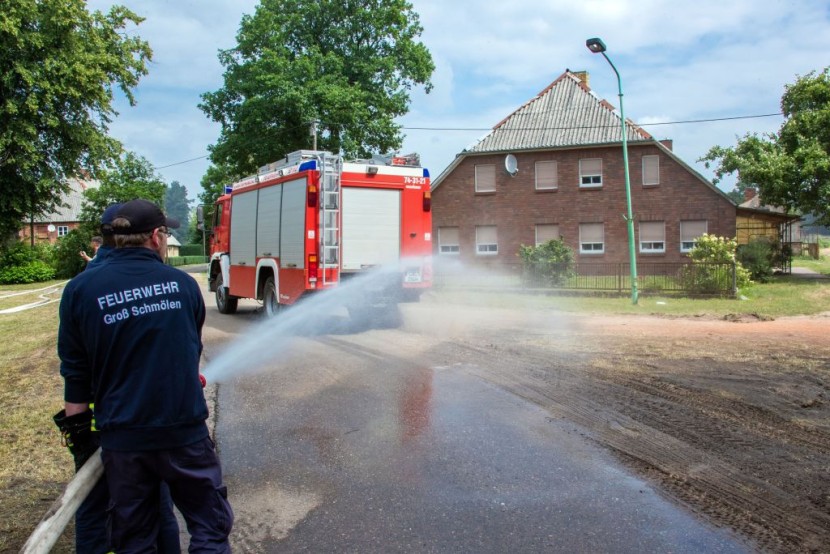Fire brigades have had millennia to hone their procedures since the founding of the first one in 6 CE. This is advantageous since the original Roman "fire brigade"-the vigiles-used brooms, sponges, siphons, and buckets of water to fight fires in addition to other tools.
Imagine arriving at a modern fire with many buckets and a sponge, despite the fact that this is undoubtedly a terrific beginning step in the realm of organized firefighting.
Firefighters have been using foams to put out flames since the early 1900s, and they have gotten better throughout the past century, according to IFLScience.
Water is mixed with foam concentrate to produce a foam that can flow over liquid surfaces, such as gasoline, to cool the region and suffocate a fire with oxygen. On top of a fuel surface, some foams will also create a coating that seals out vapors.
Fire departments started using wetting agents to make the water "wetter" around the middle of the 1960s.
According to the Underwriters Laboratories Inc. (UL) Directory, the chemical agents are "liquid concentrates which, when added to plain water in proper quantities, materially reduce the surface tension of plain water and increase its penetration and spreading ability."
The outcome is frequently referred to as "wet water" since it can penetrate the target more effectively than conventional water.
In order to put out fires, firefighters employ a combination of foams, wetting agents, and emulsifiers, which combine with fuel sources to break them down into tiny droplets that may then be encircled by water and put out.
What is Wet Water?
The term "wet water" is a bit of a misnomer, as water is already wet. However, in the context of firefighting, it refers to water that has been treated with a wetting agent.

Wetting agents reduce the surface tension of water, which allows it to penetrate more deeply into burning materials. This makes it more effective at extinguishing fires, as it can reach the fuel source and cool it down.
In addition to being more effective at extinguishing fires, wet water also has a number of other advantages. It can be used in a wider range of conditions, as it is less likely to evaporate than plain water. It is also less likely to cause damage to property, as it does not produce as much steam.
Wet Water vs. Water
The main difference between wet water and water is the presence of a wetting agent in wet water.
In addition to being more effective at extinguishing fires, wet water also has a number of other advantages. It can be used in a wider range of conditions, as it is less likely to evaporate than plain water. It is also less likely to cause damage to property, as it does not produce as much steam.
However, wet water is not always necessary. In some cases, plain water may be just as effective at extinguishing a fire. For example, if the fire is small and contained, plain water may be sufficient.
Ultimately, the best choice of water for extinguishing a fire depends on the specific circumstances. If the fire is large or out of control, wet water may be the best option. However, if the fire is small and contained, plain water may be just as effective.
© 2025 HNGN, All rights reserved. Do not reproduce without permission.








